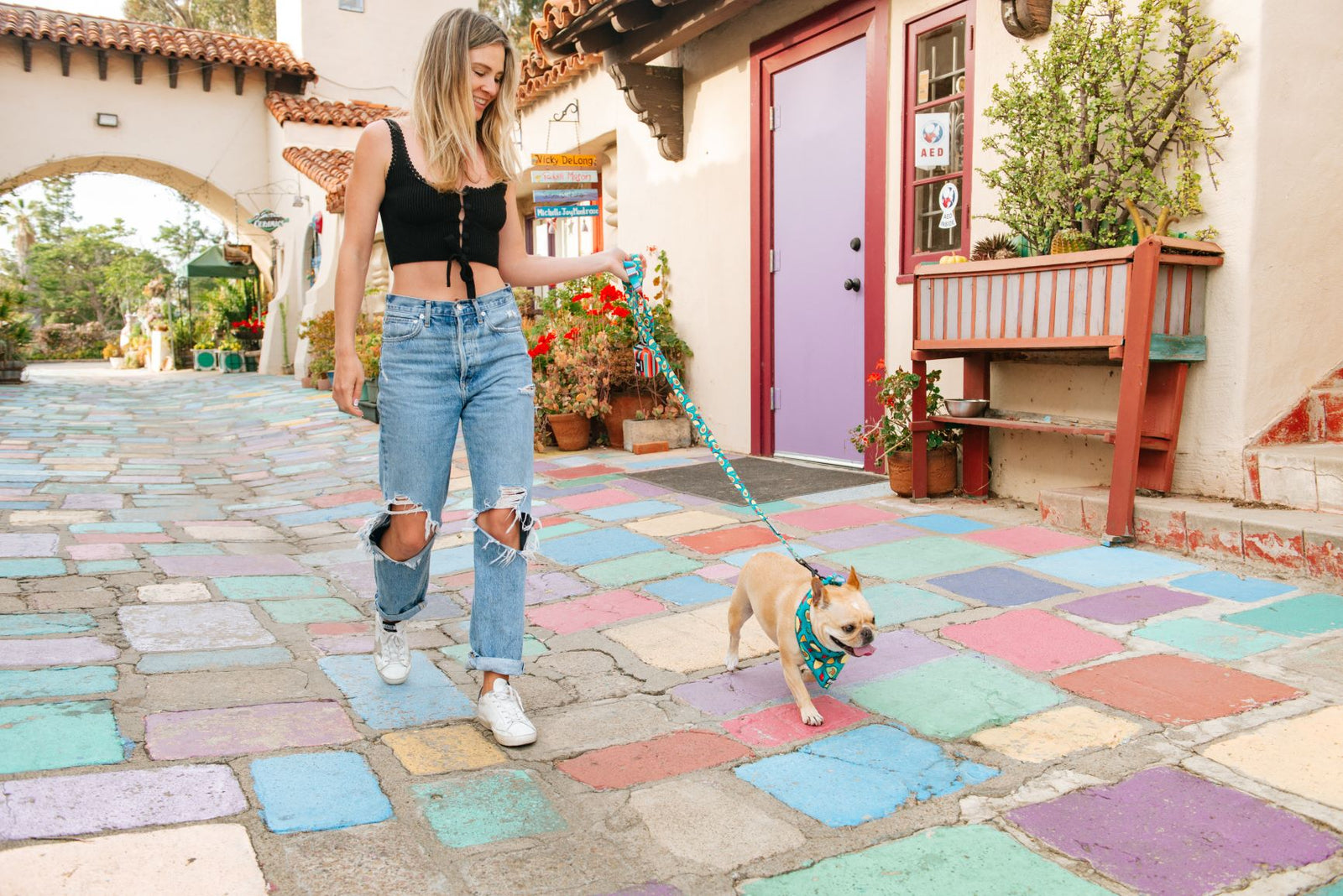How to Choose the Right Dog Trainer

So your pup's having trouble with potty training. Or maybe she listens to you sometimes -- and only when you've got a treat in hand. Maybe he gets scared at night and barks so loud your neighbors complain.
When you're at the end of your leash, it's time to call in the dog trainer.
How do you choose the right dog trainer for your family?
It's critical to find someone who aligns with your budget and instruction needs, but it's just as important to work with a trainer who respects your learning style and is ready to teach YOU -- not just your pup.
Here are ten traits to look out for in your dog trainer. Among these ten, choose the traits that are most important to you, and rank them in order from "absolutely have to have" to "eh, I can live without."
Then, you'll be ready to make the best dog trainer decision for your four-legged family members.
10 Traits to Look Out For in a Dog Trainer

1. Enthusiasm
If someone's making a career out of dog training, odds are they might like dogs a little. Enthusiasm is a critical trait for a dog trainer -- they don't have to be obsessed with your dog (although they probably already are), but they do need to be ready to be your pup's cheerleader. Most trainers LOVE what they do, and you'll click right away!
2. Patience
No pup learns his business overnight. Patience is another key trait in a dog trainer: If you feel like you're being rushed or pressured into a sale, notice the trainer is being snappy with staff or customers, or just get a weird vibe, it's okay to keep looking.
3. Kindness
Like enthusiasm, you'll notice this right away in the best dog trainers for French bulldogs and other small breeds. Small, meaty breeds take a LOT of training -- but they're also stinkin' adorable. You want to know your puppy is in good hands when she's at training class -- and you'll be able to see a trainer's kindness from a mile away.

4. Safety
This goes for both humans and dogs -- does your trainer have systems in place to keep everyone safe? A safety-focused trainer will have a wide range of technologies and tools available to guarantee the best experience for everyone. Whether that means muzzles for anxious nibblers, masks for humans, or one-on-one time for dogs who need that extra bit of attention, safety is a critical component to a successful training experience.
5. Human Teaching Skills
Your dog isn't the only one who needs to learn! A major part of your dog's training is YOUR training as well. You need a trainer that YOU feel comfortable learning from: Someone who respects your learning style and is ready to teach you everything you need to know to continue your training at home.

6. Methodology
Are you looking for the e-collar method, positive reinforcement, Canine Good Citizen Certification, or all of the above? Or did we just spout a bunch of buzzwords that made ABSOLUTELY NO SENSE?! It's important to find a trainer with a methodology you trust. For example, you may be a fan of hands-free voice training, while the first trainer you meet with specializes in electronic collar instruction. Shop around until you find someone whose methods gel with yours -- and if you don't know what you're looking for, ask! Trainers will be happy to explain their methods to you. And most offer free consultations!
7. Price
We'd be slacking if we didn't mention the price point. Some run-of-the-mill puppy group training classes can cost you $100-200 at a chain pet store. At the other end of the spectrum, a full-tilt "board and train" program can cost $4,000 or more! The amount of training you need is dependent on your budget, your dog's needs, and the amount of work you're willing or able to put in. Be sure to discuss ALL packages with your potential trainer, so you're not surprised with a huge invoice at the end!

Photo Credit: @goodboyhomie
8. Certifications
Like our friend Homie here, it's important for quality trainers to have quality certifications. Whether that means they're certified by the American Kennel Club, the CCPDT, or a local certification program, find a trainer who REALLY knows their stuff. On the other hand, someone who's just starting out in the dog training world may have little in the way of formal education, but has the instincts of Cesar Millan. Trust your gut -- and those beautiful diplomas!
9. Versatility
Along with those certifications, you'll notice that the best dog trainers offer a wide range of training options for their furry clients. What works for one pup might not work for another, and your trainer needs to be ready to adapt at a moment's notice. For example, e-collar training may work excellently for a Golden retriever, but could make a Chihuahua too nervous. In this situation, perhaps your trainer could switch to pinch training, verbal commands, or another method -- the last thing you want to do is give up!
10. Proven Success Record
If you only look for one thing in a dog trainer, it should be their past successes. Graduates of your trainer's program are the best referrals around: someone can have the spiffiest website of all time, but still not know what they're talking about. Your best bet is to read reviews, ask for recommendations, and examine success stories from other families. If your trainer's the real deal, people will DEFINITELY tell you.
Are you making your trainer relationship official? Let us know your success stories on Instagram @frenchie_bulldog -- and treat your brilliant graduate to a full outfit courtesy of the Frenchie family!
Shop our new arrivals like the TACO TUESDAY Collection to find the ultimate gift for your Good Boi Grad.






Leave a comment